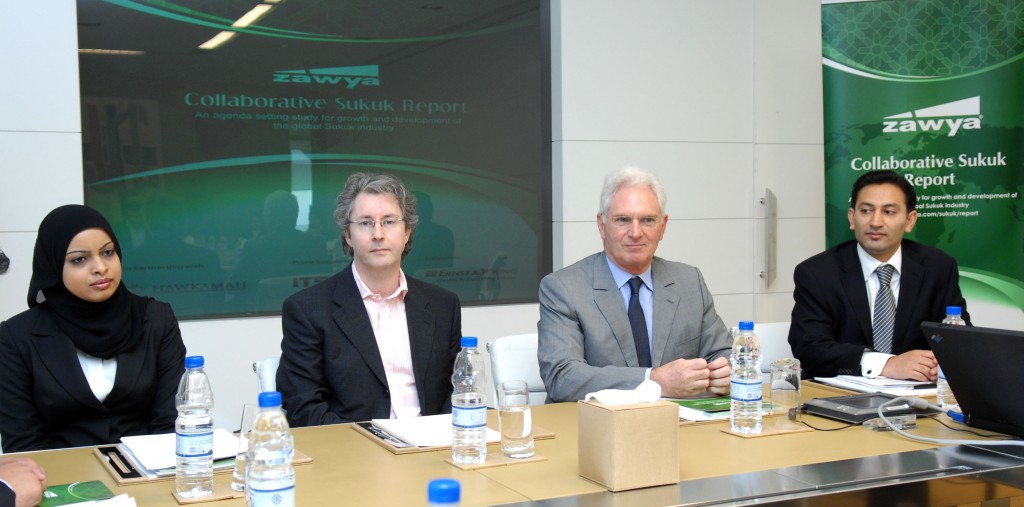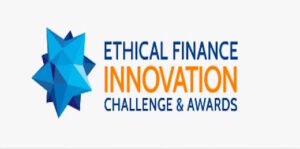
Zawya announced the launch of its first ever Collaborative Sukuk Report with the aim of addressing the barriers faced by the global Sukuk industry. The credit crisis has opened many new avenues for Islamic finance, and it has emerged as an ethical and risk-averse investment opportunity for many investors (professionals) globally. Yet when it comes to Sukuk (Shariah-compliant Bonds), transparency, liquidity in both primary and secondary markets, connectivity between the buy-side and sell-side, as well as understanding the financial concepts of Shariah to successfully structure a Sukuk, are still preventing investors and arrangers from benefiting from these opportunities.
To address these gaps, Zawya gathered the world’s leading Islamic finance professionals to collaborate on finding potential solutions to problems hindering the growth of the global Sukuk industry today.
The Collaborative Sukuk Report summarizes these contributions in order to promote the sustainable growth and transparency of the industry. The structure of the report consists of a series of thought leadership articles, including a contribution from Dr Nasser Al Saidi’s, Chief Economist at DIFC and Executive Director at Hawkamah, who partnered with Zawya to design this initiative. A comprehensive survey was then carried out by Zawya’s Islamic Finance analysts, apart from a trend analysis on the Sukuk industry in partnership with Ernst and Young.
Dr Saidi said: “Fund raising through Islamic bonds (Sukuk) has gained rapid acceptance in major global markets due to its relative stability, ethical character as well as its asset-based nature which makes it a promising asset class and investment security for many investors. However, its full potential is yet to be realised, mainly because it still is a mysterious instrument for many international investors. The Collaborative Sukuk Report helps dispel the mystery and exposes the full potential of the Islamic Sukuk and the emerging International Islamic Securities Market (ISM).”
Zawya Chief Executive Ihsan Jawad explains why the initiative: “The ultimate purpose of Islamic finance is to help others build and improve their livelihoods as opposed to achieving hyper profits and the blind pursuit of growth for its own sake. In return for their help, Islamic finance players should command a fair reward based on their efforts and participation rather than a return on capital at risk. The practical role of Islamic finance is to encourage and institute risk sharing among as many participants as possible in order for new and real economic activities to prosper. To help Islamic finance claim its rightful role, Zawya aims to empower professionals the world over with the means to identify, assess and monitor true Islamic finance opportunities across the globe. That is the reasoning behind Zawya’s first annual Collaborative Sukuk Report”.
By engaging the community of Islamic Finance professionals through discussion and debate of the current challenges faced by the industry, the Zawya Collaborative Sukuk Report’s aim is to build on this community by addressing the issues in a collaborative effort that will fuel real economic growth and prosperity as opposed to being a self-centered community that feeds on the hard work of good businesses from across the economy.
Zawya Launches Collaborative Sukuk Report to Strenghthen The Global Islamic Finance Community
6 December, 2009
read 2 minutes
Read Next
Media Comments & Quotes
Comments on CSR, Global Post via Xinhua, 19 May 2015
Click here to access the original article, published 19 May 2015; comments highlighted below. Corporate social responsibility
20 May, 2015
MENA Economics
Ethics, Rebuilding Trust in Finance & Some Lessons from Islamic Finance: Speech at EFICA 2014
This keynote address was given at Ethical Finance Innovation Challenges & Awards (EFICA) 2014, organised
30 October, 2014
Media Comments & Quotes
Regulators may be the “new rock stars” but don’t forget the media: The National
[This article by Frank Kane appeared in The National on 18th Feb, 2014. Link to
19 February, 2014



